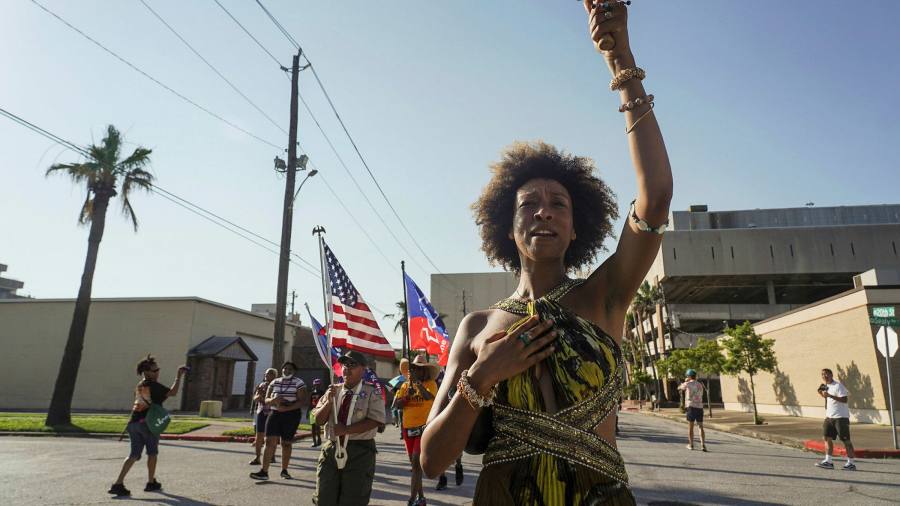This weekend Americans celebrated Juneteenth for the first time as a national holiday, but for many black Americans the festivities were bittersweet.
For decades, the historical significance of June 19 was little known outside select regional pockets and some intellectual circles, even among black Americans.
I was 20 years old when I first heard about it. Some friends and I ran into a sparsely attended parade in Harlem. When I stopped to ask what was going on, I was told that it was to celebrate the anniversary of when the last slaves in Galveston, Texas were belatedly informed of their freedom, two months after the civil war had ended in 1865.
Activists like 94-year-old Opal Lee have been campaigning for years to make Juneteenth a national holiday. But the cause did not gain a wider following until recently, when social media made it easier to spread ideas across communities.
Even as awareness grew, references to Juneteenth in sitcoms, such as Atlanta in 2016 and Black-ish in 2017, centred on the holiday’s novelty. “[Juneteenth is] a 150-year-old tradition that no one’s heard about . . . not even my black kids,” the family patriarch figure in Black-ish says.
That changed after the murder of George Floyd and the resulting Black Lives Matter protests that disrupted cities around the world last year. Suddenly it seemed as if most of America was infatuated with Juneteenth, as corporations and politicians conflated the longstanding campaign to nationalise the holiday with the massive movement focused on ending police brutality.
Corporate America led the charge when companies rushed to announce they were giving employees the day off as a way to quickly signal they were sympathetic to the black community. Initially, it was well received.
“A lot of people just needed something to be hopeful about,” says Robert Greene, an editor for the Society of US Intellectual Historians. He also learned about Juneteenth for the first time as an adult. “They needed a symbol to give them some strength during a trying time and Juneteenth became that.”
But one year on, it’s harder to see the adoption of a holiday that relatively few people in the black community traditionally celebrate as a win. To date, the Juneteenth resolution is the boldest step taken by lawmakers to address racism since the murder of George Floyd.
Meanwhile, the George Floyd Justice in Policing Act, which aims to increase accountability within law enforcement, has stalled in the Senate and a bill to protect voting rights is on life support. These policies were among the main demands activists agitated for last summer. A new federal holiday was not.
Juneteenth also coincides with heated debates in state legislatures across the country about critical race theory, an academic concept that examines American laws and institutions through race. Some legislators are considering measures to fine teachers for discussing the impact of slavery in state schools (which I imagine would make it hard to explain to students why they have this particular day off).
Last month Senator John Cornyn, lead sponsor of the Juneteenth resolution, sponsored a “Back the Blue” bill that would increase funding opportunities for police departments and expand the rights of officers to carry guns. He has also dismissed the idea that systemic racism plays a role in policing or society at large.
A holiday that acknowledges the historical trauma inflicted on slaves is cold comfort for black Americans when people in positions of power fail to connect that past with the inequalities we grapple with today.
“It’s hypocritical to say ‘Yes, we honour this day of black liberation’ and not be committed to black liberation in the 21st-century context,” says Brea Baker, vice-president of politics and programmes for advocacy group Inspire Justice. “We don’t have any substantive legislation addressing the things that are actually keeping a lot of people figuratively and very literally not free.”
If history is a guide, it may take another 150 years for lawmakers to address those issues. So, in the meantime, I will enjoy my day off.

